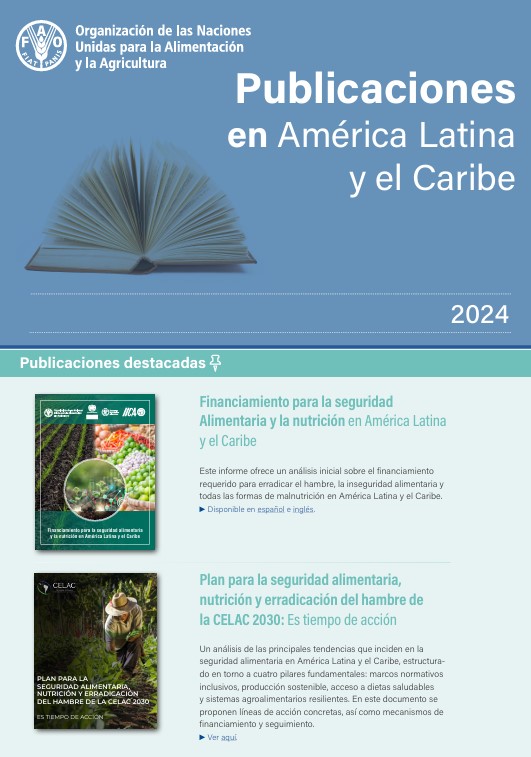Publications
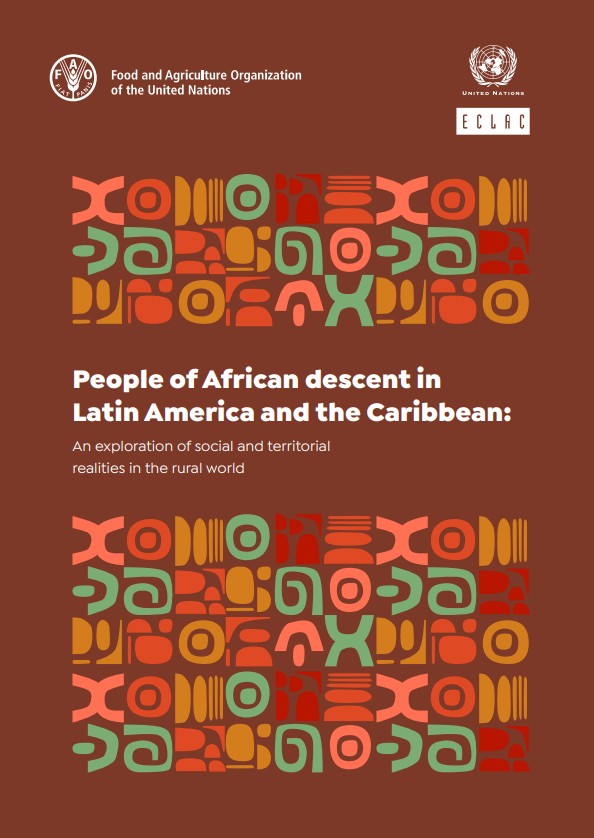
People of African descent in Latin America and the Caribbean: An exploration of social and territorial realities in the rural world
02/04/2025
Census data show that Afro-descendant people experience greater levels of inequality, marginalization and discrimination, especially in rural areas.
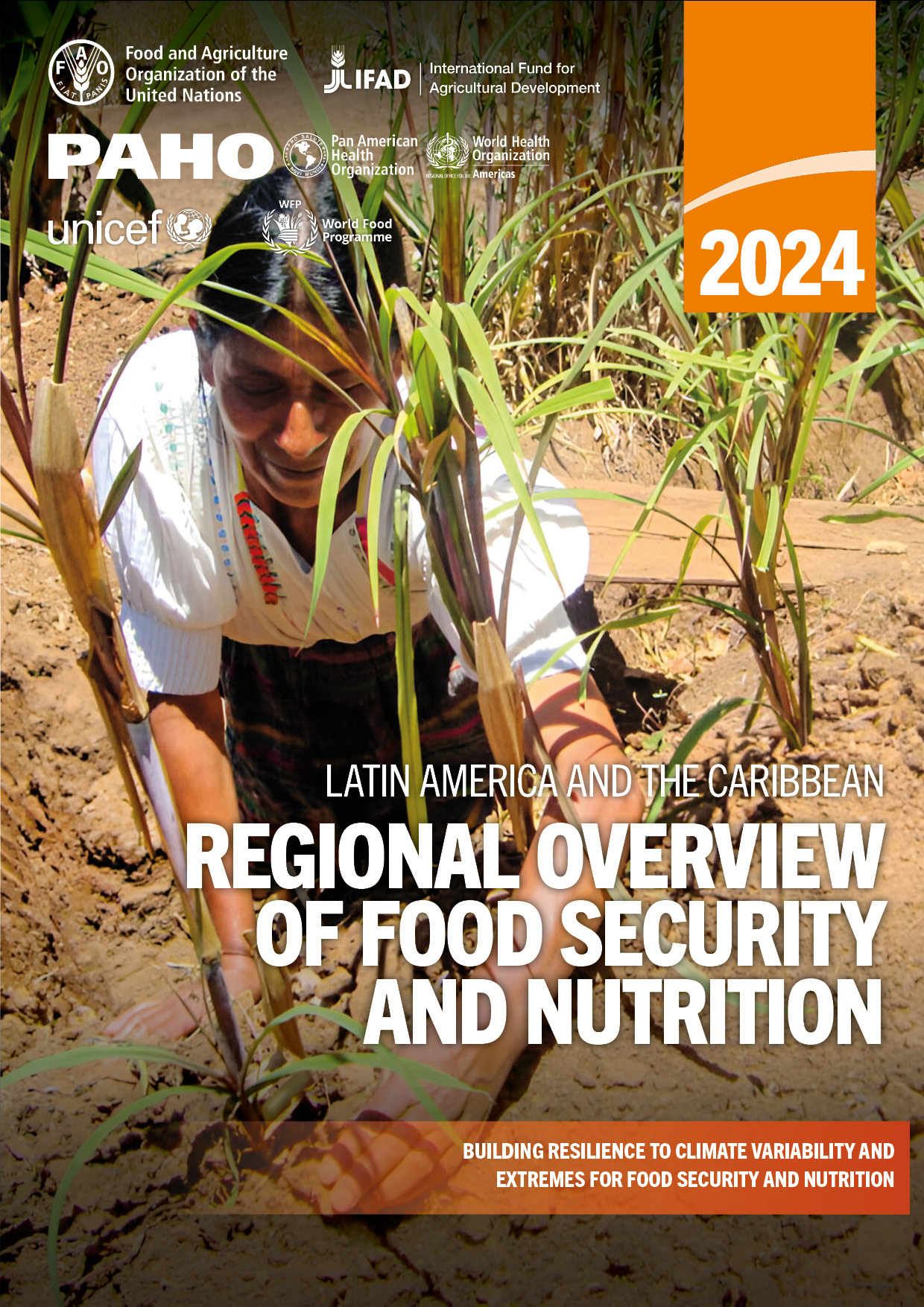
Latin America and the Caribbean Regional Overview of Food Security and Nutrition 2024
27/01/2025
Latin America and the Caribbean have seen a decline in hunger and food insecurity for two years, driven by social protection programs and post-COVID recovery. However, disparities persist, especially among women, rural populations, and vulnerable groups. The region is unlikely to meet most nutrition targets, and healthy diets remain expensive. Climate variability is increasing in the region, affecting food security across availability, access, utilization, and stability.
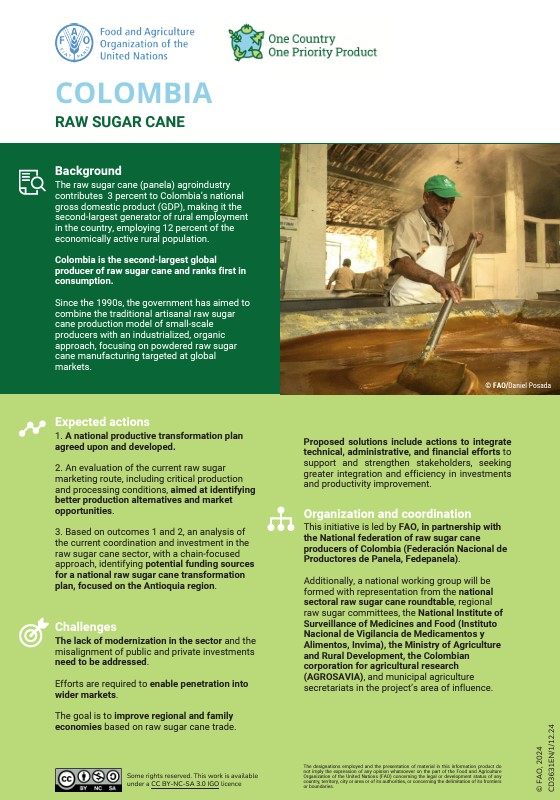
Colombia: Raw sugar cane
09/12/2024
This document addresses the situation in Colombia. The OCOP product is raw sugar cane (panela). Colombia is not only preserving a key element of its agricultural heritage but also contributing to global sustainability goals by fostering green development, improving community resilience, and ensuring the long-term viability of raw sugar cane production.
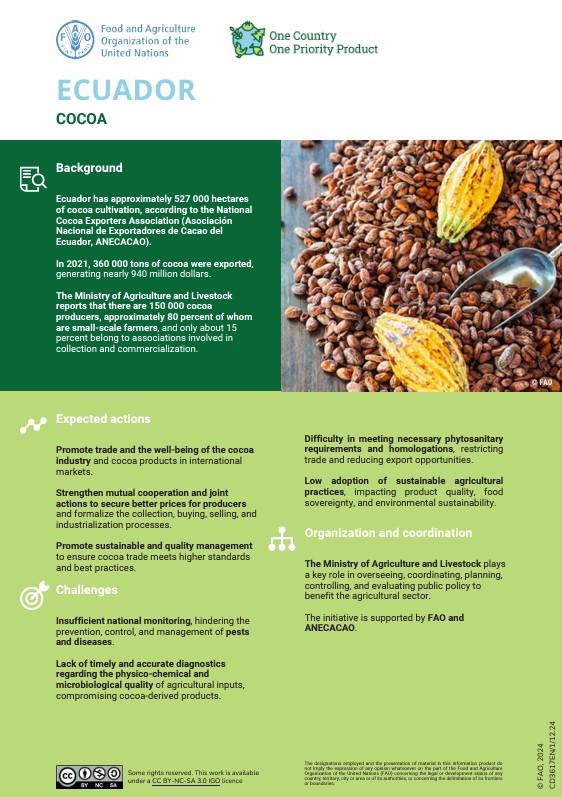
Ecuador: Cocoa
09/12/2024
This document addresses the situation in Ecuador. The OCOP product is cocoa, a crop of great cultural and economic significance. Ecuador is renowned for its high-quality cocoa, and by focusing on this product, the initiative aims to strengthen sustainable cocoa production practices, increase its global market presence, and improve the livelihoods of local farmers, all while promoting environmental stewardship and climate resilience.
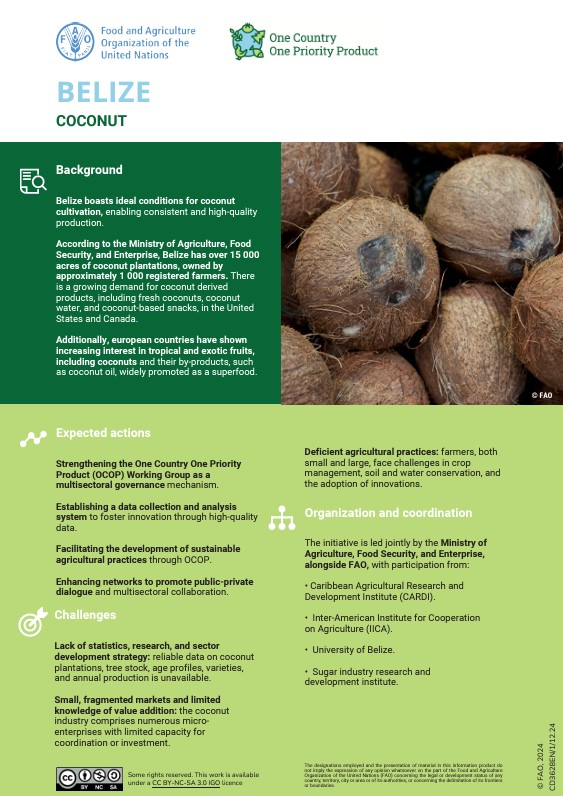
Belize: Coconut
09/12/2024
Belize's coconut industry benefits from ideal growing conditions and increasing global demand for coconut products. With over 15 000 acres of plantations managed by 1 000 farmers, the sector exports to key markets like the United States of America, Canada, and Europe, where coconut oil and other by-products are recognized for their nutritional value.
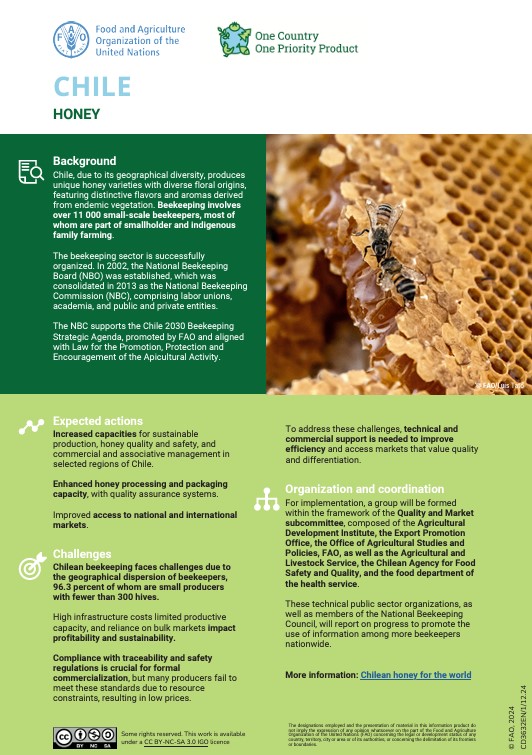
Chile: Honey
09/12/2024
This document addresses the situation in Chile. The OCOP product is honey, a product of significant cultural, economic, and environmental importance. By focusing on honey, the OCOP initiative aims to promote sustainable production methods, improve market access, and increase the income of local beekeepers, particularly small-scale producers.
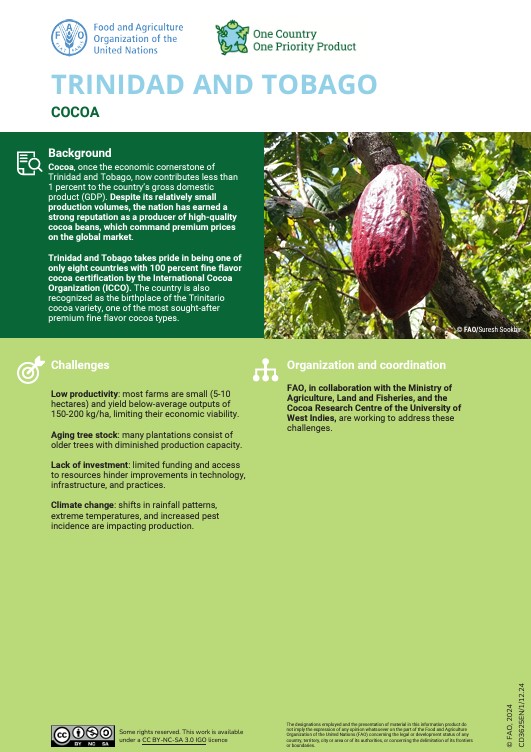
Trinidad and Tobago: Cocoa
09/12/2024
This report highlights the significance of cocoa production in Trinidad and Tobago under the One Country One Priority Product (OCOP) initiative. Despite contributing less than 1 percent to the nation’s GDP, Trinidad and Tobago is internationally recognized for its premium-quality cocoa

